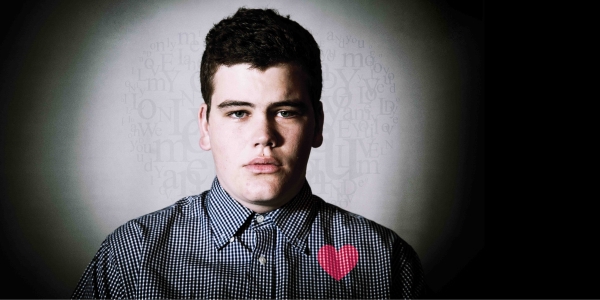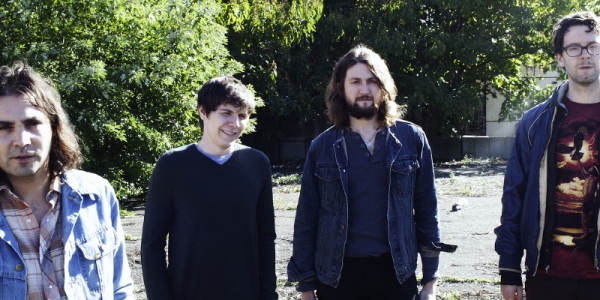“As a writer it’s pretty hard not to draw on your own experience, because that’s all you’ve got. You understand yourself from a psychological point of view so I guess I drew on the feelings I remember about the theme of love – love for friends and family, romantic love,” says playwright Kylie Trounson.
Trounson was brought on board by St Martins as writer and dramaturge for Love Letters, the concept for which had been established prior to her engagement. “I came on board and the cast were there, chosen from the youth ensemble, so I had the actors to start with,” says Trounson. “I guess I just trusted them to be able to do it. I didn’t sit there thinking, ‘Oh will this be too difficult?’ I wrote each scene with certain actors from the ensemble in mind so quite a few of the scenes are crafted for different actors and play to their strengths.”
Initially, she spent time in the rehearsal space with the young actors. “I spent an intensive week with them getting to know them and producing bits of script to see if they liked it, to see if they connected with it or not. I then went to write the whole script but tried to include their language and their input as much as possible while still keeping the sense that it was a cohesive play,” remembers Trounson. “I was working out what they’re interested in, what they’re good at, what ideas they get excited by and also to kind of get into their lexicon and their mode of thinking. It’s been a while since I was their age, so I wanted to spend some time with them to get to understand their language and their way of dealing with things. Technology and stuff is quite different for those guys whereas when I was that age I don’t think…well, there might have been the internet. But there were no mobile phones. I spent a lot of time rewinding cassette tapes.”
Working with younger actors could potentially present some challenges, but Trounson proceeded with confidence. “I didn’t really think about whether they’d be able to do it, I just presumed that they would. Teenagers are pretty surprising really. These guys are anyway. I haven’t hung around teenagers for a while, but if you just pitch it to them at the level that you’re interested in and the level of complexity and interest that an adult would like then they rise to it. When I watched the first run I was really impressed. They were really good! They understood what I was doing as a writer and the subtext. There is a quite a bit of surrealism, a particular style of mine which has come out in this script, but they can go with it.
“My particular writing style has always encompassed lightness and darkness. I like to look at things which are deep and dark and difficult but do it through a frame of laughter. I think it is a way that you can draw people in and make them feel comfortable. They’re enjoying the experience and then you just start to twist the knife a little bit and see what happens. That’s what I enjoy watching, that’s just my style naturally. That’s come through in the script that there are moments of light and moments of dark – I’m pretty conscious of trying to juxtapose the two together so that the pendulum doesn’t swing too far one way at any given time.”
The original concept, using the love letters of Melburnians to build the structure of the play, disappeared along the way, as Trounson found the experiences and voice of young people were inspiration enough. “I know there was an initial call out for love letters and we got a few, but the scope of the project changed. I got involved after they had discussed what the show might be and what it might be about. They decided they would build in these real love letters so I came on board after that call had gone out and I guess once I started talking to the director and I learned a little bit more about these particular actors, I guess I wanted to open up the scene a little bit more broadly,” reflects Trounson. “Romantic love wasn’t the only love in these young people’s lives, in fact for some romantic love wasn’t a big part of it at all. I thought we could crack it open and bring in other sorts of passion young people have for things like a love for music, the idealised love you have for an actor or a musician, the deep love they have for their pets, or that intense best friend kind of love. That cracked open the scope a bit and made the love letters that we got not quite so important in crafting the script. When you consider all the passions and love that young people have in their lives, it seems a bit limiting.”
BY JOSH FERGEUS

